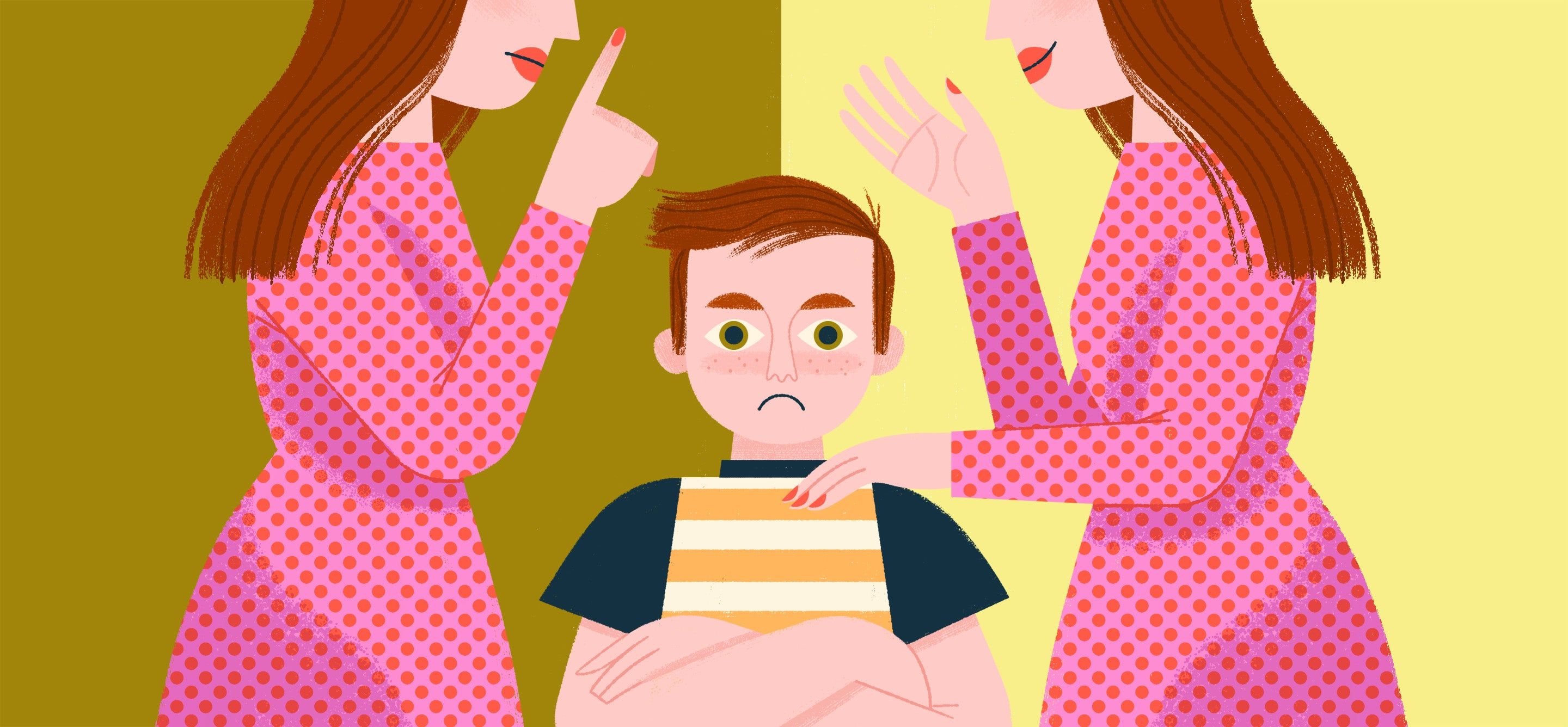
Ask Dr. Bronwyn
Punishments vs. Consequences
- Written By
- Dr. Bronwyn Charlton
- Illustration
- Loris Lora
There’s a lot of confusion on the difference between consequences and punishments. Most people think of punishments as what strict parents use to raise obedient children. But parents today tend to think more about the human they are raising and use consequences to help their kids make better choices. Like when their child refuses to get into the bath, they’ll say something like, “If you’re unable to get into the bath, then I’ll be unable to XYX,” which they consider a consequence, but the problem is, it’s really a punishment.
Just ask any kid what a consequence is, and most will tell you it’s what their parents threaten them with when they aren’t listening or won’t do what they’re told, and that’s also a punishment.
It’s no wonder the confusion given that the word “discipline” itself brings to mind strategies that parents use to get their kids to behave, but the actual goal of effective discipline is really about keeping kids safe, strengthening their self-control and developing their moral compass—not forcing them to obey.
Many parents though can’t be convinced. They can’t imagine their kids ever doing anything without them yelling or threatening punishments and worry that any other kind of discipline just ends up with entitled kids that get away with everything. It feels safer to control their kids’ behavior and demand compliance, than trust the outcomes of their children’s choices to be their teacher.
Ironically, fear over losing control motivates many parents to come down harder, and is the very thing that increases the chances their kids will become rebellious teens and young adults. Since punishments aren’t about kids’ choices and how they impact others, they don’t get kids to reflect on their actions or take personal responsibility. They’re imposed on kids to intimidate them into compliance, and have nothing to do with a child choosing to do the right thing, so they don’t do anything to develop their self-discipline. Kids learn to be good in order to avoid getting in trouble, so their moral compass never gets to develop fully. Instead, their capacity for deception grows strong while their connection to their parents is ruptured.
In contrast, given that a consequence is the spontaneous outcome resulting from a person’s choice or behavior, as a discipline tool, they’re experienced as the result of a child’s choice or behavior, not imposed by a parent to teach a lesson. So, the situation itself becomes the teacher and kids learn that how they behave is their choice and their responsibility. When kids are allowed to experience the consequences of their actions (both good and bad), they become internally motivated to make better choices or behave differently the next time.
The most powerful consequences are those that happen naturally. Parents give a child a warning or tell a child to do something, but do nothing to control what the child does next, or rescue them from making a bad decision (e.g., let the child get a bad grade on a project they forgot about, or allow a child to feel cold with no jacket in February). Any negative outcomes resulting from a child’s poor choice teach the lesson, and motivate them to do better in the future, instead of punish them for what they did in the past.
When natural consequences aren’t possible, practical or safe, logical consequences are also good teaching tools, especially when the 5 R’s are used as guidelines to ensure that they’re fair and effective. Logical consequences should be 1) respectful and cause no shame or suffering, 2) related to the misbehavior, since arbitrary consequences only make kids angry at you, 3) reasonable in duration and severity, 4) revealed in advance, so your child is aware of the consequence of their choices ahead of time, and 5) repeated back by the child, so it’s certain they’re clear on the expectation and consequence.
The best consequences are those that are connected to the behavior parents want to see their child change or improve. If a child hits their sibling or calls them names during an argument, a logical consequence might be that they lose 15 minutes of their TV-time and spend it instead making amends by writing an apology letter. These situations also offer meaningful opportunities for kids practice problem-solving, since doing so asks that they reflect on their behavior and brainstorm ways to act to differently in the future.
So, the next time your child refuses to do what you’ve asked or gives you a hard time and you’re feeling like the only way to get them to do what you want is to threaten one of your go-to punishments, think back to what you want to accomplish. Remind yourself that discipline means to teach, and consequences should be about learning and motivating better behavior.